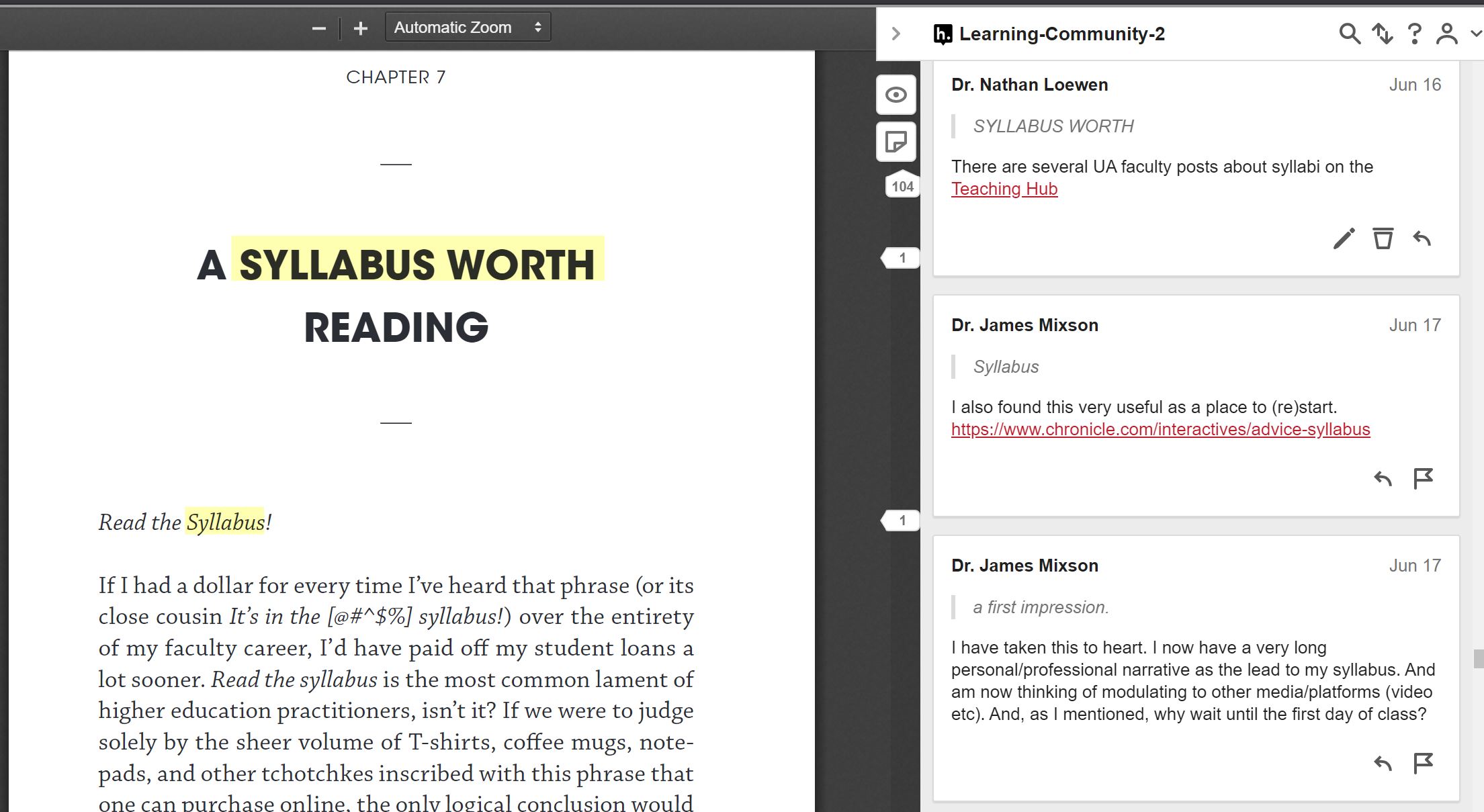by Nathan Loewen, Department of Religious Studies
I hope that you and yours are keeping safe, healthy, and well this summer. With the University’s plan in place for Fall 2020, you might be taking more concrete steps in with your syllabus and course designs. Some of your planning might involve UA-supported online platforms and software. There are more than 200 faculty-written Teaching Hub blog posts, too, whose content you might adapt to your purposes. I wish to add to this list with a post about the Hypothesis Blackboard app, which you can already find in all UA Blackboard courses (under the “build content” menu).
Encouraging students to engage with course texts is no new challenge. Course readings are a common tool to help students gather and assemble the knowledge they need to succeed in a course. Since 2017 I have used Hypothesis to help students engage with my course readings.* I used it to have my students
- Locate specific passages I wish to discuss
- Identify difficult terms, ideas, or passages they wish to discuss
- Pinpoint connections they see with other content from elsewhere (other texts, images, web)
- Mark places where lectures engage a text
- Specify where to look in preparation for quizzes and exams
With the need for engaging socially distant learning, I realize that something like Hypothesis is more important than ever to have students add comments and start conversations in the margins of online texts and PDFs. I will use it this fall for all the above reasons, but I will also use it to see how my students are reading and interacting with one another. The app meets all of our University’s accessibility and student privacy policy requirements.
If you are interested in learning more about Hypothesis, please contact me. I am arranging for demos, workshops, and 1:1 consultations.
What does it look like? Here is an example from a July UA faculty reading group:

If you are interested, here are some Blackboard resources for using Hypothesis as well:
- How to set up Hypothesis readings in BB
- How to grade Hypothesis annotations in BB
- A student guide to Hypothesis in BB
Here are a few general Hypothesis resources that might be useful to students: